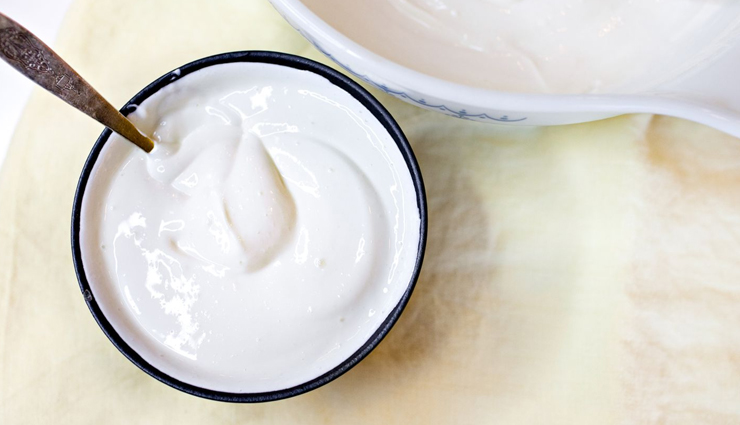15 Best Easy-to-Digest Foods to Soothe an Upset Stomach


Yogurt is a probiotic-rich dairy product known for its positive impact on digestion. The live cultures in yogurt balance the gut microbiome, aiding in food breakdown, nutrient absorption, and maintaining gut health. It soothes the stomach lining, reducing gastrointestinal issues like indigestion and bloating. Choose plain, unsweetened yogurt with active cultures for maximum benefits. Including yogurt in your diet supports digestion and overall gut health naturally.
Kefir is a fermented dairy drink rich in probiotics, similar to yogurt. The probiotics in kefir help balance the gut microbiome, improving digestion and nutrient absorption. It contains vitamins and minerals, including calcium and vitamin B12. Regular consumption of kefir can alleviate digestive issues, strengthen the immune system, and may be suitable for those with lactose intolerance. Incorporating kefir into the diet can support digestive health and overall well-being.
Ginger is a popular spice and natural remedy known for its positive impact on digestion. It stimulates the digestive system, aids in the breakdown of food, and eases symptoms of indigestion, bloating, and gas. Its anti-inflammatory properties soothe the stomach lining and reduce nausea, making it beneficial for motion sickness and morning sickness during pregnancy. Additionally, ginger supports regular bowel movements and enhances overall digestive health.
Papaya is a fruit with digestive benefits due to the presence of the enzyme papain. This enzyme helps break down proteins, easing digestion and reducing bloating and gas. The high fiber content in papaya aids in relieving constipation and supporting regular bowel movements. Additionally, papaya's anti-inflammatory properties soothe the stomach lining and improve nutrient absorption. It also promotes a healthy gut microbiome and may help with heartburn. Including papaya in the diet can be a natural and delicious way to support digestive health.
Pineapple is beneficial for digestion due to its bromelain content, an enzyme that aids in protein breakdown and reduces bloating. Bromelain also has anti-inflammatory properties that soothe the stomach lining and ease digestive discomfort. The fruit's fiber promotes regular bowel movements and supports gut health. Pineapple's nutrient absorption benefits ensure efficient use of essential vitamins and minerals. Moderation is important, and individuals with specific health concerns should consult a healthcare professional before adding pineapple to their diet.
Peppermint is beneficial for digestion due to its antispasmodic and soothing properties. It helps alleviate indigestion, reduce bloating and gas, and relieve nausea and motion sickness. Peppermint oil has shown promise in easing symptoms of irritable bowel syndrome (IBS) and supporting gallbladder function. Its ability to relax smooth muscles aids in preventing constipation and heartburn. Peppermint also has antimicrobial effects that combat harmful bacteria. Incorporating peppermint into the diet, such as through tea or fresh leaves, can promote better digestion.
Bananas are beneficial for digestion due to their rich dietary fiber content, including soluble and insoluble fiber. They ease digestive discomfort, provide relief from heartburn, and act as a natural antacid. Bananas contain prebiotics that nourish beneficial gut bacteria, promoting a healthy gut microbiome. Their potassium content helps balance electrolytes and supports proper muscle function in the digestive tract. Ripe bananas are gentle on the stomach and can be consumed during digestive upset. They serve as a natural antidiarrheal by restoring electrolyte balance.
Whole grains offer multiple benefits for digestion and overall digestive health. They are high in dietary fiber, promoting regular bowel movements and preventing constipation. Whole grains nourish beneficial gut bacteria, support a healthy gut microbiome, and aid in proper nutrient absorption. Their slow energy release helps stabilize blood sugar levels, and they reduce the risk of digestive disorders while aiding in weight management. Including whole grains like oats, brown rice, quinoa, and whole wheat in your diet can contribute to improved digestion and overall well-being.
Fermented vegetables like sauerkraut and kimchi are rich in probiotics that promote gut health and digestion. These probiotics enhance the gut microbiome, aid in nutrient absorption, and reduce digestive discomfort. They support regular bowel movements, strengthen the immune system, and possess natural antimicrobial properties. Incorporating fermented vegetables into the diet as a side dish or condiment can contribute to better digestion, overall digestive health, and immune system support.
Artichokes offer multiple benefits for digestion and digestive health. They are rich in dietary fiber, aiding in regular bowel movements and preventing bloating. Artichokes act as prebiotics, nourishing beneficial gut bacteria and supporting a healthy gut microbiome. They stimulate bile production and support liver function, aiding in fat digestion and detoxification. The mildly bitter taste of artichokes triggers digestive juices and enzymes, promoting overall digestive function. Including artichokes in your diet can contribute to improved digestion and overall gut health.
Fennel is a herb known for its digestive benefits. It relaxes stomach muscles, reduces bloating and gas, and aids in smoother digestion and bowel movements. Fennel's carminative properties alleviate indigestion and stomach discomfort, making it useful for irritable bowel syndrome (IBS) and cramps. Its pleasant aroma stimulates appetite and digestive juices. Fennel also possesses antimicrobial effects. Chewing fennel seeds or brewing fennel tea can support digestion, but moderation is important.
Apples offer multiple benefits for digestion and digestive health. They are rich in dietary fiber, supporting regular bowel movements and a healthy gut microbiome. Apples aid in weight management by promoting satiety and contribute to better digestion through enzymes and natural sweetness. Their alkaline nature can alleviate heartburn, and antioxidants like quercetin support liver function. Apples' high water content helps maintain hydration. Consuming apples with their skin maximizes fiber intake.
Bone broth is beneficial for digestion and digestive health due to its rich nutrient content. It contains collagen, gelatin, amino acids, and minerals that support gut healing and maintenance. The prebiotics in bone broth nourish beneficial gut bacteria, reducing inflammation and supporting a healthy gut microbiome. Bone broth's soothing properties ease digestive discomfort, making it useful for conditions like IBS. It also promotes hydration and aids liver detoxification. Consuming high-quality bone broth as a drink or base for dishes can contribute to improved digestion.
Chia seeds offer multiple benefits for digestion and digestive health. They are high in dietary fiber, both soluble and insoluble, which promotes regular bowel movements and reduces bloating and gas. Chia seeds support a healthy gut microbiome as prebiotics, aid in weight management, and enhance nutrient absorption. Their ability to absorb water keeps the digestive system hydrated. The omega-3 fatty acids in chia seeds have anti-inflammatory properties. Adding chia seeds to various dishes can be a convenient way to enjoy their digestive benefits.
Spinach offers multiple benefits for digestion and digestive health. It is rich in dietary fiber, supporting regular bowel movements and preventing constipation. Spinach contains prebiotics that nourish beneficial gut bacteria, promoting a healthy gut microbiome. The vegetable aids in nutrient absorption and has alkalizing properties, providing relief from heartburn. Its antioxidants help reduce inflammation in the digestive system. Spinach's high water content contributes to hydration, and it is easy to digest. Incorporating spinach into meals through salads, smoothies, or cooked dishes can provide its digestive benefits.